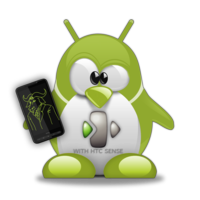
Lawyers from Apple have been on a global winning streak against Samsung's Galaxy tablet. The latest win came in Australia, where a judge stopped the product's import over a patent personally filed by the late Steve Jobs.
To Florian this is a really big deal.
After today's decision, I believe no company in the industry be able to launch any new Android-based touchscreen product in Australia anytime soon without incurring a high risk of another interim injunction. The two patents on which today's ruling is based aren't Galaxy Tab 10.1-specific at all. They will affect all Android-based smartphones and tablet computers, across all vendors.
If Apple wins the Australian case at the end of the main proceeding, all Android-based products will effectively be shut out of the Australian market forever, unless Google or its device maker partners settle with Apple.
Bunk.
Software can be changed. Samsung has already changed its implementation of Android to get around a Dutch injunction against its smartphones. It can do so here.
Unless, of course, Apple can convince courts around the world that only it can make a tablet, under patent claims going forward 20 years. Absent that, competition will happen. The company will be playing whack-a-mole for the next several years, seeking injunctions that can be gotten around as easy as patching a bug in software.
This is the nature of technology today. It's driven by software. Hardware is, generally, a commodity, and cheap-as-chips. And while you may be able to claim a patent on some software technique, that doesn't mean someone can't innovate around that technique, or find another way to do the same thing and put that into software.

But the nature of software is that you can change it. The nature of software is there are always multiple ways to do something. So software patents are, at the end of the day, silly, a waste of legal resources. You can protect the way you trap mice, but protecting the very act of trapping mice risks infestation.
In the end, even if the idea of software patents is endorsed by every country, and enforced by every court, it won't protect an Apple monopoly on smartphones or tablets. It will just cost money, and time.
Eventually competition is a function of the market, not the law courts. And thank God for that.











